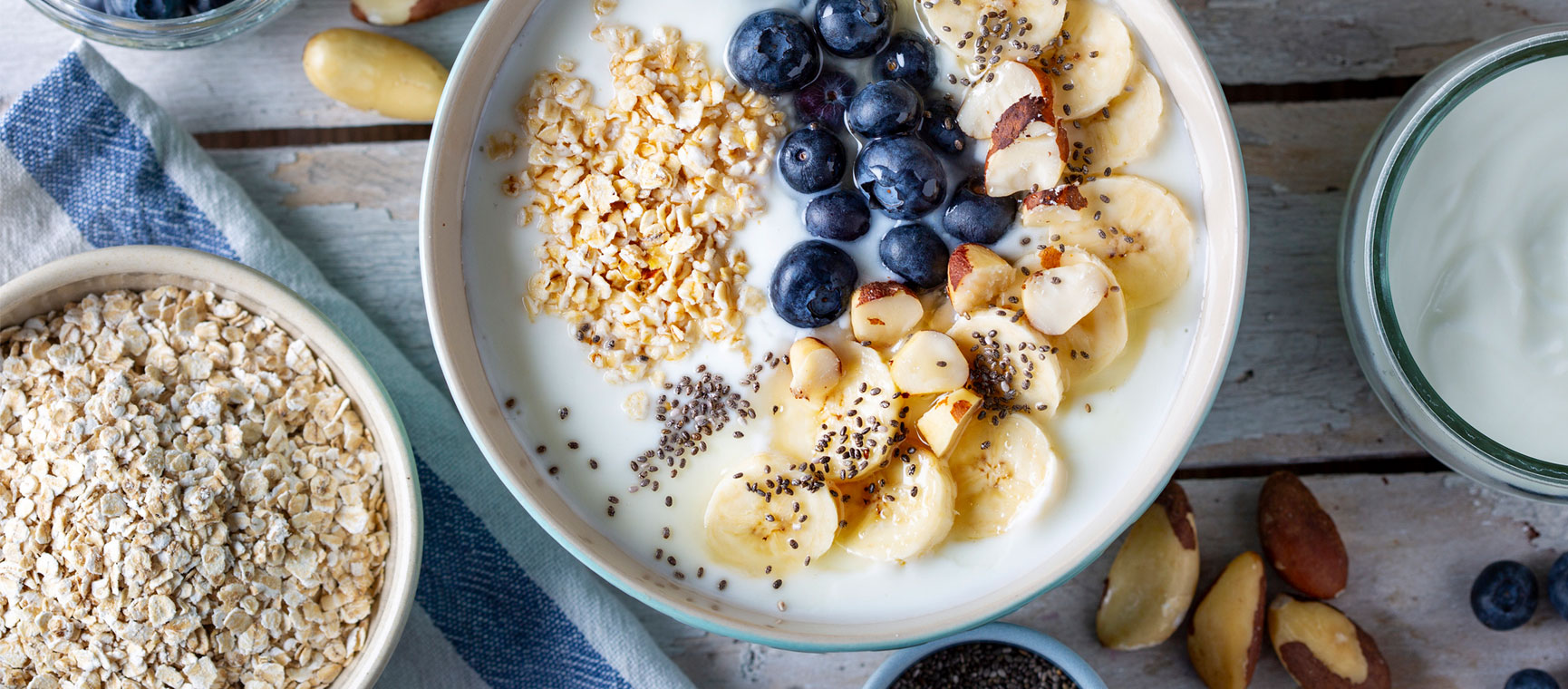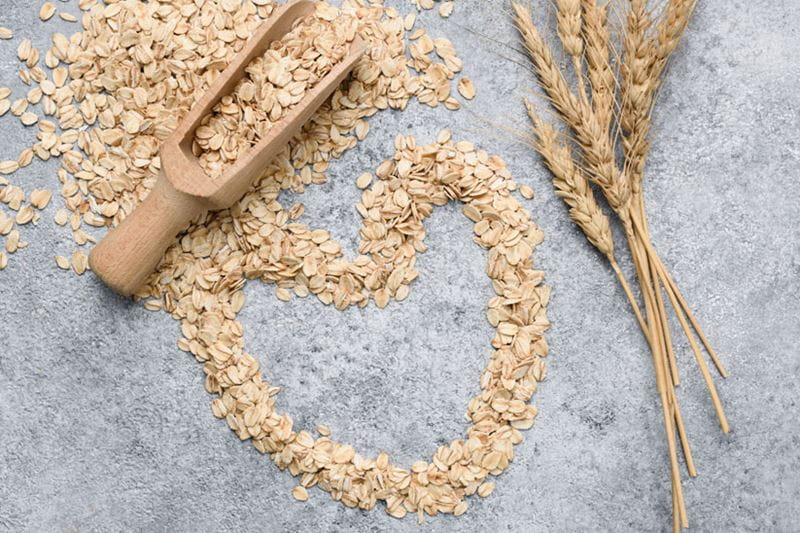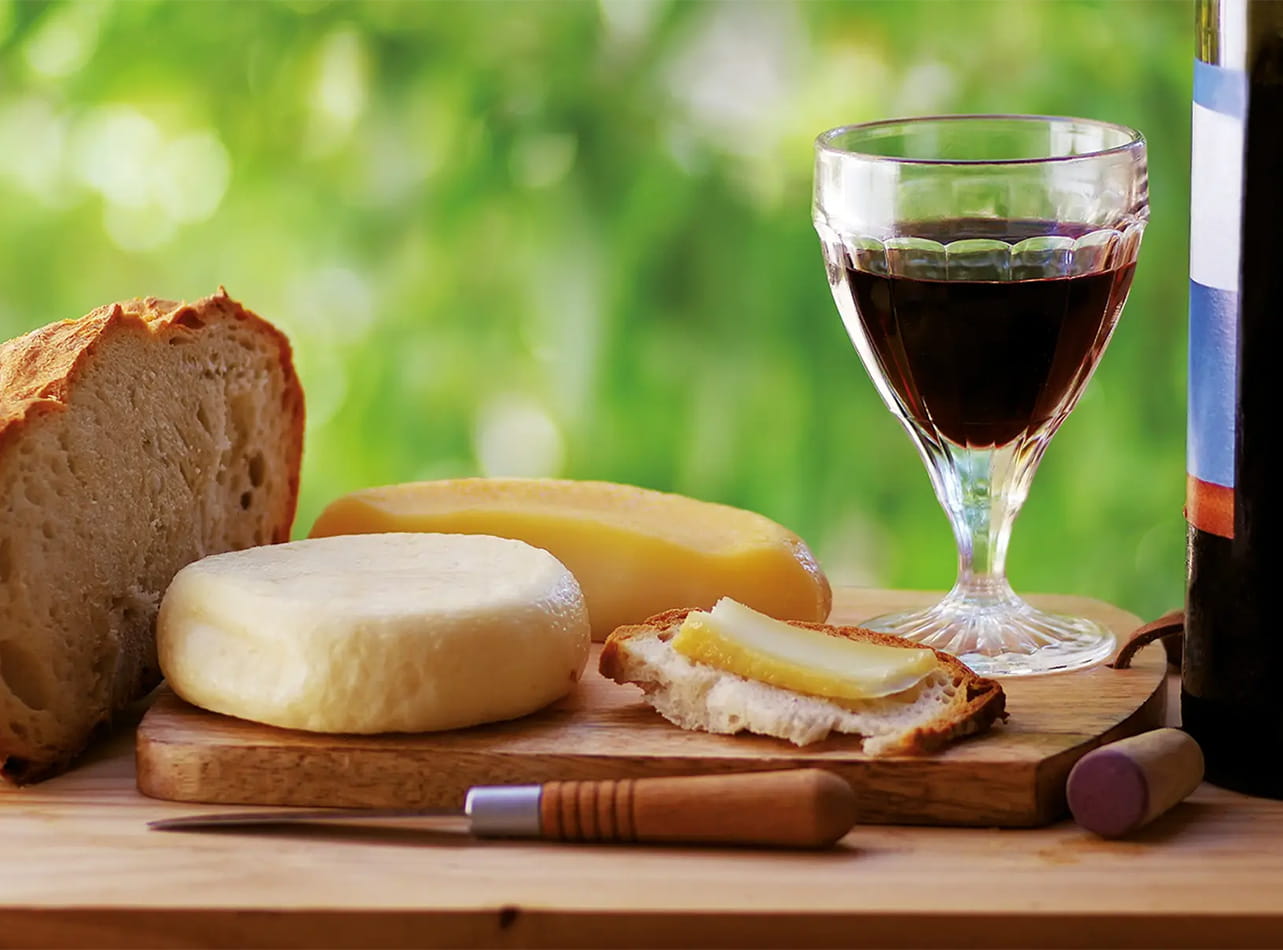Porridge and its superpowers – but is it always the healthiest breakfast?
Porridge has a noble reputation as the nation’s heartiest breakfast, but are the budget brands, instant sachets and pots just as healthy?

Porridge has a noble reputation as the nation’s heartiest breakfast, but are the budget brands, instant sachets and pots just as healthy?

Affordable, filling and versatile; a bowl of porridge ticks so many breakfast boxes. Especially as our cravings for comfort food kick in with the colder months.
From lowering cholesterol and controlling blood sugar, to boosting overall digestive and heart health, porridge packs a healthy punch.
Indeed, our experts rank it No 1 in our breakfast league table, beating bran flakes, muesli and all other “healthy” cereals.
And did you know that our humble porridge oats also deliver on skin health, bone density, weight control and cognitive function?
But what about those packets of instant porridge, with their tempting – and healthy sounding – fruit flavour combinations, like “apple and blueberry” and “raspberry and cranberry”?
Beware, says nutritionist and author Clementine Pellew-Harvey: “Many of them are loaded with added sugar – sometimes 10-15g per serving – which is nearly four teaspoons!
“This completely undermines the blood-sugar benefits of oats. You’re essentially eating dessert for breakfast.”
So what should we be looking out for on the packaging, if we want to opt for the healthiest porridge?
“The only listed ingredient should be oats,” explains Pellew-Harvey: “If there's a long list of additives, flavourings and sugars, put it back. Plain oats contain about 1g of natural sugar per 100g.
“Anything significantly higher means sugar has been added. Aim for less than 5g of sugar per 40g serving.”
To avoid overly processed porridge, fibre and protein content are good indicators of “whole oats”. There should be at least 3-4g of fibre per serving and 4-6g of protein listed in the nutrition table.
Another porridge pitfall to swerve is the range of instant porridge pots on the supermarket and convenience store shelves. They can be a tempting option, with their convenience and irresistible flavours, such as “hazelnut and chocolate” or “sweet cinnamon”.
But they’re essentially “sugar bombs”, warns Pellew-Harvey. Even if they’re branded with supposed health benefits, like “high protein” or “organic”, they’re still sugar-laden.
Budget-conscious porridge fans rejoice! Those very affordable supermarket-own brands are just as good as the premium varieties.
“Plain oats are plain oats,” says Pellew-Harvey. “As long as they have just one ingredient on the label, they’re all the same.”
“Jumbo”, “rolled” and “steel-oats” are the most natural porridge varieties with the biggest health benefits for our breakfast bowls. “Quick oats” are processed although they still offer more nutrition than the instant sachets and pots.
Women’s health nutritionist Stephanie Smith says the bigger the oats, the better: “I’d always opt for jumbo oats where possible. They’re the least processed of all and therefore have slower blood sugar response.
“They’re also a great source of fibre. Slightly slower to digest, they deliver more sustained energy and keep you fuller for longer.”

How do oats help to improve our cardiovascular wellbeing? Well, that’s all down to a wondrous soluble fibre in porridge called beta-glucan, which reduces the absorption of cholesterol in the digestive tract.
One study even found that a daily 40g serving of oats can reduce cholesterol by 5-10%, while a global review revealed that porridge-based beta-glucan can significantly reduce our heart-disease risk.
Porridge has a low glycemic index that helps maintain stable blood sugar levels, unlike sweetened breakfast cereals or white toast.
“The fibre in porridge slows down the absorption of glucose, which is particularly beneficial for preventing or managing type 2 diabetes,” says Pellew-Harvey.
“It also prevents those mid-morning energy crashes that can be more pronounced as we get older.”
Oats are a nutrient-dense, low-calorie food, making porridge a brilliant breakfast choice for those of us trying to maintain or lose weight. But that filling, satisfying feeling after a bowl of porridge can also really help us to resist reaching for the biscuit tin at 11am.
“The combination of fibre, complex carbs, and a decent amount of protein (about 5g per serving) means porridge genuinely fills you up,” says Pellew-Harvey.
“Research shows people who eat porridge for breakfast consume fewer calories throughout the day compared to those eating other breakfast cereals.”
Just be mindful of your toppings and try to step away from that big spoonful of sugar or honey.
Check out our power-packed toppings below for ideas.
Oats contain manganese, magnesium, and phosphorus, which are all important for maintaining bone density, particularly in post-menopausal women with lower oestrogen levels and a higher risk of osteoporosis.
Preparing your porridge with fortified plant or dairy milk will provide a calcium boost, as well as the vitamin D that helps us to absorb it.
Porridge is packed with antioxidants, including manganese, vitamin E and avenanthramides that can protect the skin from accelerated ageing and cell damage caused by free radicals. The B vitamins in porridge also provide an anti-inflammatory function in conditions such as rosacea and eczema.
“Not only can oats offer protection from oxidative stress, they also contain silica, which supports collagen production which is important when our skin loses elasticity with age,” says Pellew-Harvey.
The avenanthramides in oats are also brilliant for our brains and can give our all-round cognitive function an often-needed morning boost.
“Avenanthramides are unique antioxidants that improve blood flow to the brain,” explains Pellew-Harvey. “Combined with the steady energy supply, this supports mental clarity and focus throughout the morning – no brain fog!”
Smith says there are further benefits for women’s cognitive wellbeing specifically: “Keeping our energy levels stable can prevent energy dips and mood swings and may even help with headaches and general brain health.”

Pellew-Harvey has some inspiration for preparing the healthiest, tastiest breakfast bowl.
“This is where porridge becomes truly exciting!” she says. “You can transform a simple bowl into a nutritional powerhouse.”
Soak oats in milk (dairy or plant-based) overnight in the fridge. This makes them easier to digest and creates a creamy, pudding-like texture.
The soaking process also helps break down phytic acid, which can inhibit mineral absorption. Perfect for busy mornings!
This adds protein, calcium, and makes it creamier and more satisfying.
Use dairy milk, or fortified soy, oat, or almond milk.
This enhances the natural sweetness of the oats without adding sugar.
Add some chia or flax seeds while cooking: These add omega-3 fatty acids, extra fibre, and create an even creamier texture.
Protein: Greek yogurt, a spoonful of nut butter (almond, peanut, cashew), a handful of nuts (walnuts, almonds, pecans), or a scoop of protein powder or egg whites stirred in while cooking.
Healthy fats: Nuts, seeds (pumpkin, sunflower, chia, flax), nut butter, or a few squares of dark chocolate (70%+ cocoa).
Antioxidants: Berries (blueberries, raspberries, strawberries), pomegranate seeds, grated dark chocolate, or a sprinkle of cacao nibs.
Extra fibre: Chia seeds, ground flaxseed, sliced banana, grated apple, or dried fruit (dates, figs, apricots – but watch portions as they're high in natural sugar).
Flavour without sugar: Cinnamon (also helps regulate blood sugar), vanilla extract, nutmeg, ginger, cardamom, or a small drizzle of honey or maple syrup.
Gut health: A dollop of kefir or probiotic yogurt, which adds beneficial bacteria.
Our nutrition experts share their favourite recipes for superpowered porridge bowls, packed with flavour and nutrition.
Emma Lazenby is entering her third decade in journalism, after starting her reporting career on the Yorkshire Evening Post as a teenager.
She’s loved every minute, with contributions to the Sun, Daily Telegraph and women’s magazines, between stints as a Lifestyle Editor for the Press Association and TV Producer for GMTV and Steph’s Packed Lunch.
Emma has covered mental and physical health, charity campaigns, fashion and beauty, travel, food and parenting with celebrity and inspirational real-life interviews featuring heavily.

Find out about Saga's gastronomy holidays here...
They say the way to the heart is through the stomach, and Saga’s thoughtfully crafted food and wine holidays are perfect if you like trying new flavours and exploring traditional methods of cooking.

Get 3 months free, plus a £125 Totally Rewards Wellness Gift Card when you start a new policy by the end of 19 February 2026. T&Cs apply.
Underwritten by Bupa Insurance Limited.

Are you retiring at the wrong age? The best age to retire for your body, brain, happiness and pocket.


Everything you need to know about the lung infection, and how you could be ill with “walking” pneumonia without realising it.

Strong calves for a strong mind: how they support our circulation and brain health, with easy moves to strengthen yours at home.


Our GP Dr Mark Porter explains what can cause itchy skin, which is a common problem as we get older.

Worried you’ve morphed into Victor Meldrew? Find out how to battle that bad mood, and what to do if you’re stuck with a grouchy loved one.

The benefits of heat and cold therapy, and how Nordic bathing won over our nervous writer.

Here’s how to spot the symptoms of heat disease and reduce your danger.


The NHS winter vaccination campaign kicks off next week. Here’s the lowdown on what you need to book.

Pilates for back pain – what to do if you are suffering, and five gentle exercises that could help.

Dizziness or vertigo: a sensation of spinning, can stop us doing everyday things for fear of falling. Try these tips to stop feeling dizzy


You don’t have to put up with bladder leaks. We try out the latest pelvic floor gadgets for men and women.

Cataracts are a normal part of ageing. Learn how to spot the signs – and when it’s time to consider surgery.